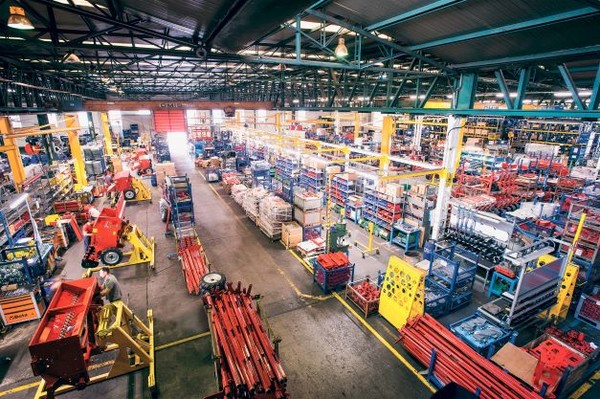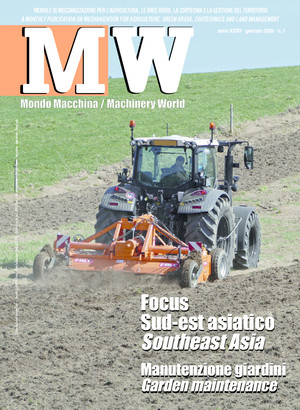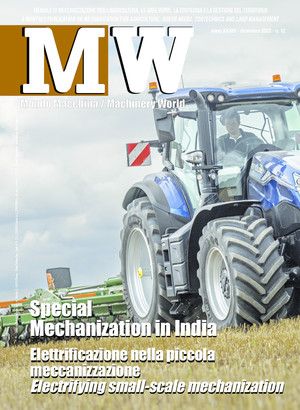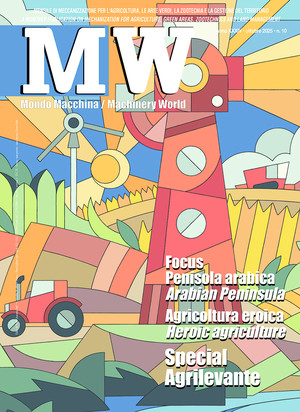
Crisis in Ukraine, agricultural machinery must 'work as a system'
The fourth edition of the FederUnacoma Think Tank dedicated to the geopolitical emergency and the commodity situation took place on 31 March in Bologna. The commodity crisis could last for years, so it is necessary for agro-mechanical companies to develop long-term strategies, while being reactive to sudden situational changes. Proposals were made by thematic study groups
The international landscape presents many factors of instability that require agricultural machinery companies to adopt more flexible strategies than ever before. This is what emerged from the work of the fourth edition of the FederUnacoma Think Tank, which was held on 31 March in the evocative setting of the Dall'Ara Stadium in Bologna and which dealt with topics relating to the current geopolitical crisis and the raw materials emergency.
"The military conflict between Russia and Ukraine has aggravated tensions on the commodities market, which had already manifested themselves last year with sharp price increases and supply chain disruptions, combined with further price increases in the logistics sector," explained FederUnacoma president Alessandro Malavolti, opening the plenary session. "In this context," explained geopolitical expert Dario Fabbri, who spoke at the event, "our country must diversify its commodity supply channels while companies must explore the opportunities offered by other markets since it is highly likely that the sanctions against Russia will last for years."
Inflationary pressures on raw materials as well as on logistics are not only jeopardising the production capacity of the national agro-mechanical industry, but are also reducing the spending power of farms, which are being penalised above all by rising prices for energy and fertiliser (of which Russia is the world's leading producer). In addition, the reduction in grain supplies from Eastern Europe is creating a strong imbalance between supply and demand, which is also reverberating on agricultural commodity prices, thus creating the conditions for a global food crisis. The production gap can be bridged by a new crop geography, by increasing arable land, and by investing in the latest agricultural machinery. However, the current situation does not appear favourable as rising production costs are reducing the spending power of farm incomes. In this context, agricultural machinery companies must be particularly reactive to situational changes, and they must also follow long-term strategies to mitigate their exposure to commodity volatility, the manufacturers' forum said.
On these issues, some interesting signals came from the technical panels promoted at the end of the plenary session. The energy study group, coordinated by Andrea Zaghi of Elettricità Futura, reiterated the need to diversify energy sources and supplies, also by focusing on renewables. However, in order to exploit the sector's full potential, incentives for storage systems must be strengthened, while at the same time providing for measures to reduce costs. The panels on ecological transition and climate change, coordinated respectively by Davide Spitale (Alzarating) and Lorenzo Ciccarese (ISPRA), analysed the issue of global warming and stressed the opportunity of tapping into new levers of "green" development. The issue of industrial raw materials was also central. Italian manufacturers of agricultural machinery - it was stressed by the working group on the materials emergency, whose expert was Ciro Rapacciuolo from the Confindustria Research Centre - must focus on regionalising supplies, collaborating with close and reliable partners. Collective purchasing and business networks can strengthen the negotiating power of companies in negotiations with suppliers, thus improving contractual conditions. The thematic round table on new materials, with Daniela Amandolese (Materially), highlighted the need for close cooperation between companies and the research world, also by exploiting EU funding channels. The new materials - it was explained - could solve many supply problems, but it is necessary to evaluate with great attention the use that they can find in the agricultural machinery production processes.
"We are facing a very unstable economic phase that could last for years and so now more than ever," concluded Malavolti, "the Italian agricultural machinery industry needs to work as a system, to be competitive on new markets and to create sector synergies that could benefit both the sector as a whole and individual companies".








